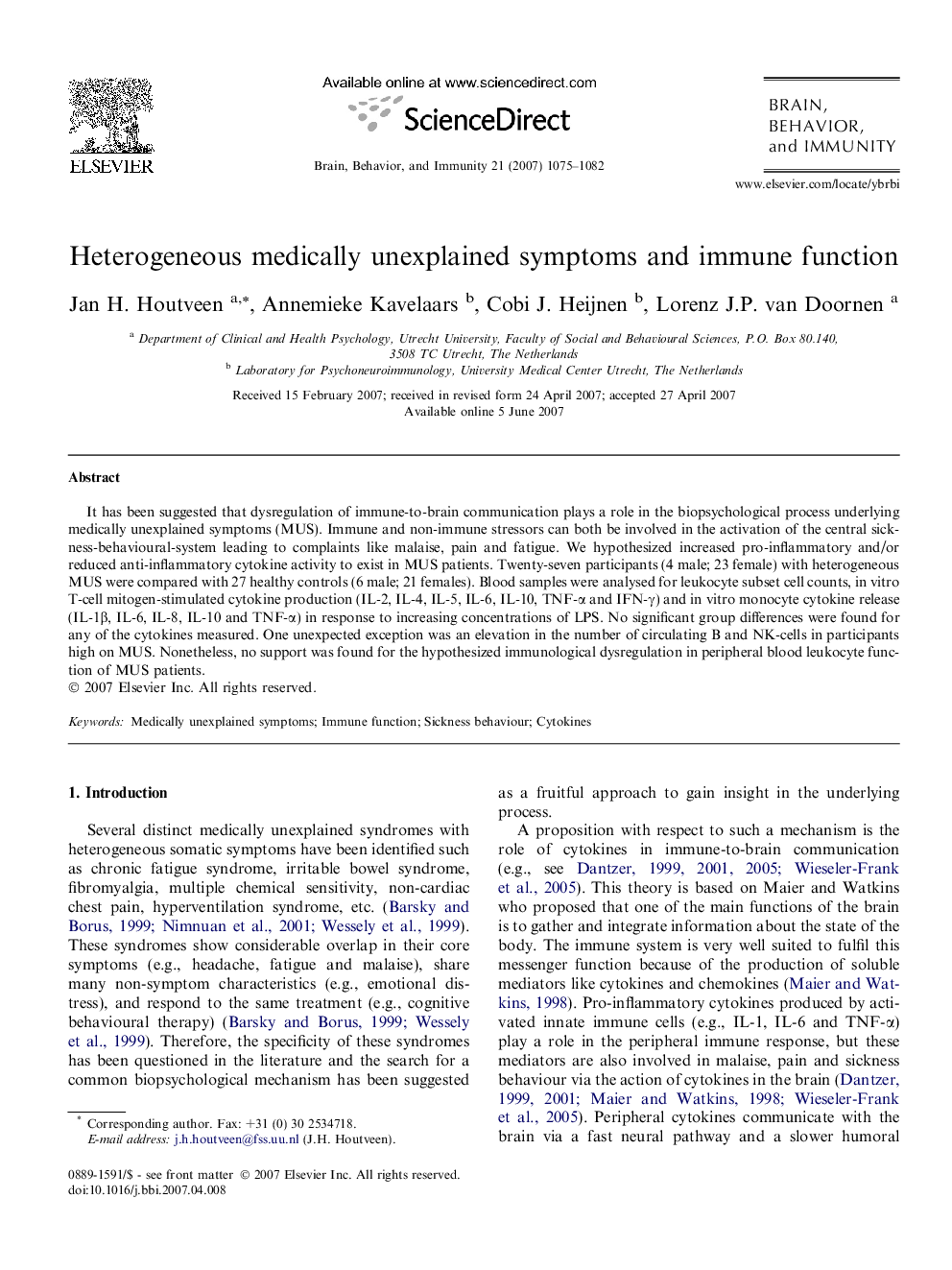| Article ID | Journal | Published Year | Pages | File Type |
|---|---|---|---|---|
| 923404 | Brain, Behavior, and Immunity | 2007 | 8 Pages |
It has been suggested that dysregulation of immune-to-brain communication plays a role in the biopsychological process underlying medically unexplained symptoms (MUS). Immune and non-immune stressors can both be involved in the activation of the central sickness-behavioural-system leading to complaints like malaise, pain and fatigue. We hypothesized increased pro-inflammatory and/or reduced anti-inflammatory cytokine activity to exist in MUS patients. Twenty-seven participants (4 male; 23 female) with heterogeneous MUS were compared with 27 healthy controls (6 male; 21 females). Blood samples were analysed for leukocyte subset cell counts, in vitro T-cell mitogen-stimulated cytokine production (IL-2, IL-4, IL-5, IL-6, IL-10, TNF-α and IFN-γ) and in vitro monocyte cytokine release (IL-1β, IL-6, IL-8, IL-10 and TNF-α) in response to increasing concentrations of LPS. No significant group differences were found for any of the cytokines measured. One unexpected exception was an elevation in the number of circulating B and NK-cells in participants high on MUS. Nonetheless, no support was found for the hypothesized immunological dysregulation in peripheral blood leukocyte function of MUS patients.
